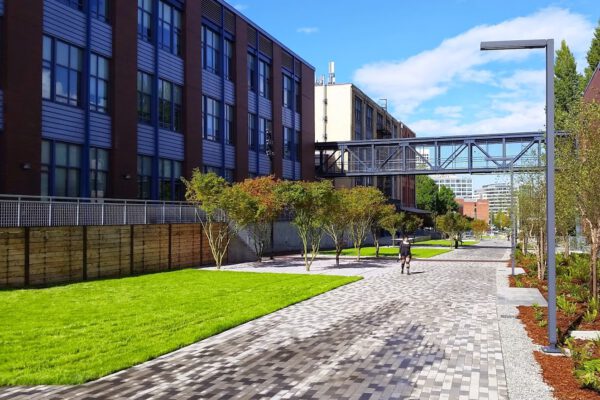By Lucia Brajkovic
The Western Balkans (WB) region of Southeast Europe, encompassing the seven countries of Albania, Bosnia and Herzegovina, Croatia, Former Yugoslav Republic (FYR) of Macedonia, Kosovo, Montenegro and Serbia), is still a largely overlooked part of Europe when it comes to higher education reform and modernization.
Most countries in the region faced a difficult transition from socialist regimes to the market economy after the war following the dismantling of Yugoslavia in the early 1990s. The political and structural weaknesses (namely, inefficient bureaucratic structures, weak governmental accountability and corruption) have continuously affected the countries’ academic sectors, especially because their respective governments oversee them. The higher education systems in the region also have been influenced by successive and often contradictory policies that result from changes of the political parties in power (i.e., conservative governments often resorted to changing previous liberal legislations, and vice versa).
In light of these circumstances, capacity-building projects and international strategic partnerships play a crucial role in developing leadership skills, institutional analytics capabilities and institutional change strategies at WB institutions. One example of such strategic partnership between a U.S. institution—the Institute of Higher Education (IHE) at the University of Georgia (UGA)—and institutions in Croatia is the Higher Education Initiative for Southeastern Europe (HEISEE). HEISEE operates as an independent entity and offers opportunities for networking, workshops, regional consultations, communications, conferences and meetings. Its overarching goal is to enhance postsecondary education throughout the region.
Enrollment, Completion Rates and Structural Issues in the Western Balkans
In the WB countries, which have a combined population of 22.7 million, the vast majority of students in higher education are enrolled in public institutions. Even though tertiary enrollment rates in the region are relatively high—on average, close to 50 percent of the traditional college-going age—the degree completion rates are rather low. The available estimations reflect graduation rates an average of below 40 percent within 10 years of enrollment for Croatia, FYR Macedonia and Albania. These educational outcomes, coupled with structural issues and high unemployment rates, present major challenges for WB countries.
Furthermore, the sociopolitical context and related practices have led to stagnation in developing long-term national strategic goals in these countries. In turn, there is a call for reforms from the local academic community, mostly related to increasing institutional autonomy and moving away from direct state supervision, increasing the quality of education and research productivity, and integrating and professionalizing university leadership and management.
Another structural problem pertains to the lack of institutional or country-level schemes to offset tuition costs and ensure equal access, as well as the retention of low-income and underserved populations. Some countries in the region have “free” tuition for at least a portion of their students, and some financial aid and national scholarships are available at certain institutions. However, these amounts are still far from covering all of the education-related costs for students, such as fees, books and living expenses. In some countries, projects are underway to create solutions and introduce a more robust student aid system (e.g., the Institute for the Development of Education is working on such project in Croatia).
Policy Considerations
In light of these circumstances, it is worth noting that policy and decision-makers in the region should avoid the simple adoption of policies that do not account for countries’ specific needs, socio-political and economic circumstances, and necessary resources for successful implementation.
For example, WB countries view the developed European Union countries that are able to spend significantly more in absolute terms on higher education as examples to be followed. However, the experience in post-socialist societies, and especially in this region, suggests that some institutional and systemic challenges—such as strict government oversight paired with inefficient bureaucratic structures, lack of long-term strategy, and, in some cases, corruption—exceed anything that developed countries have ever faced. Without taking into account these considerations, the adoption of various generalized trends and policies may worsen already existing issues facing higher education sectors in these countries. International initiatives such as HEISEE aim to create capacity and conditions for developing a more strategic approach to policy creation and analysis in the domestic policy arena.
A Closer Look: The HEISEE Initiative in Croatia
Croatia’s higher education system is regulated on a national level and has undergone intensive reforms since 2003, driven in large part by the Bologna Process (which Croatia joined in 2001). In terms of international collaboration, the majority of Croatia’s activity involves other European countries. Although examples of institution-level partnerships between U.S. and Croatian institutions are few, UGA’s long-standing and fruitful relationship with Croatian higher education illustrates the impact of one such endeavor and may serve as a platform for additional collaboration between the two countries.
Efforts began in the early 2000s, with UGA’s IHE hosting delegations of faculty and administrators from Croatian institutions for workshops and various training sessions. Since then, IHE faculty and graduate students have traveled to Croatia to collaborate on numerous activities with Croatian universities and Ministry of Education and Science officials. The U.S. embassy in Zagreb has provided funding for some of these activities.
Building on a decade of engagement, in 2012, the IHE became a founding partner in the HEISSE. The HEISEE is an alliance of several organizations in Croatia: the University of Rijeka, the Institute for Social Research in Zagreb and its Centre for Educational Research and Development, the Institute for the Development of Education, and the Government Agency for Science and Education. Each year, several IHE faculty members visit Croatian institutions to participate in information-sharing sessions on topics such as change management strategies, student services, faculty affairs, finance and institutional research. In addition to Croatian members, faculty and administrators from neighboring countries—such as Bosnia and Herzegovina, Serbia and Slovenia—have participated in these sessions.
In line with its focus on capacity building, HEISEE has spurred the development of a new master’s program in higher education governance and management at the University of Rijeka. IHE faculty and doctoral students have been involved in the development of the program—the first university program in higher education in the region—that was piloted in the spring of 2015. Once the program’s accreditation process is complete, IHE faculty will teach several courses in person and online.
Going forward, UGA intends to remain an active HEISEE participant. Currently, HEISEE’s main objectives are to expand the initiative to include other countries from the region; establish partnerships with their higher education institutions, ministries of education, and education-related non-governmental organizations; develop additional graduate degree programs; and offer an expanded array of workshops and other training opportunities for policy-makers and institutional administrators. In addition, HEISEE hopes to engage scholars and practitioners in the region to study key higher education issues and devise integrated and sustained strategies for regional improvement and development. Student and faculty exchanges and additional research collaborations across the region—as well as with UGA and other U.S. institutions—will also be part of HEISEE’s scope of activity.
UGA’s fruitful collaboration with Croatian higher education institutions may serve as an example for other potential U.S.–Croatia partnerships, as well as a venue for the exchange of expertise and acquisition of valuable international learning experience on the topics and issues facing diverse higher education systems, both in the United States and Europe, particularly the WB region.
If you have any questions or comments about this blog post, please contact us.


